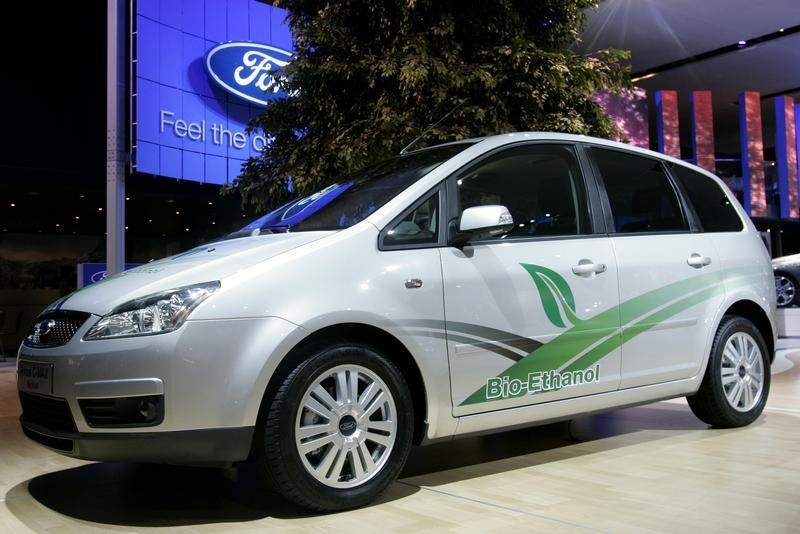© Reuters. GM and Ford Navigate Tense Union Negotiations: UAW’s $80 Billion Labor Cost Challenge
Shares of General Motors Co. (NYSE:) and Ford Motor Co . (NYSE:) faced significant decline in the US stock market due to rising concerns over escalating labor costs resulting from union demands. The United Auto Workers (UAW) union is pushing for wage hikes and several other adjustments, which, according to estimations by leading US car firms, would result in an increase of more than $80 billion in costs for each company.
This situation mirrors the recent Teamsters union’s negotiations with United Parcel Service Inc (NYSE:)., which concluded in an expensive deal causing the courier to revise its annual financial projections downward.
On Thursday, GM stock plummeted by 5.8%, marking its largest daily drop in almost eight months, while Ford’s shares slid 4.5%. Stellantis (STLA) too saw a 1.8% decline. Analyst David Whiston from Morningstar noted that the ambiguous nature of these negotiations could keep GM and Ford in “the penalty box” in Wall Street’s view for a significant period. The negotiations revolve around the UAW’s demands for a 46% wage surge, re-establishment of traditional pensions, cost-of-living hikes, a reduced workweek, and improved retiree perks.
The Three automakers—GM, Ford, and Stellantis—are engaged in rigorous discussions over these demands, and while they have resisted many of the union’s requests, the broader US labor movement’s recent success, as evident in Teamsters’ negotiation outcomes with UPS, might give UAW an edge. UAW President Shawn Fain asserts that union workers at these companies deserve a compensation boost, especially after their role in aiding these companies to bounce back post the Great Recession, paving the way for their record-breaking profits.
Conversely, these car giants argue that they already provide substantial pay and benefits and must maintain wage competitiveness, especially when considering investments in the shift towards electric vehicles.
The ongoing dialogue between UAW and these automakers invariably raises investor concerns due to the potential repercussions of a strike, which would adversely affect company operations and profit outlooks, as highlighted by Argus Research analyst William Selesky.
This article was originally published on Quiver Quantitative
Read the full article here


